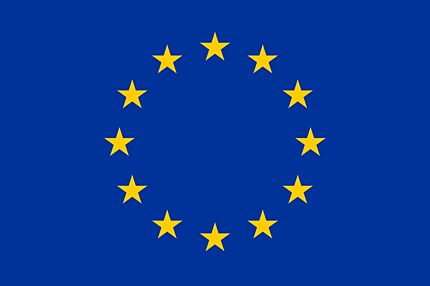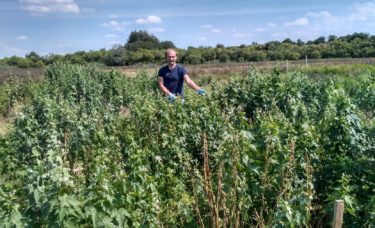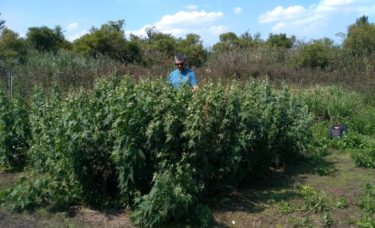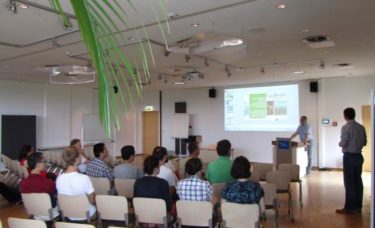
International scientific exchange
IETU researchers are becoming more and more mobile due to projects implemented within international consortia. One of the examples is the Phyto2Energy project, under which three units from the science sector and three from the economic sector in such countries as Poland, Germany and Romania conduct joint research on energy crops and exchange knowledge and experience.
Internships of researchers from R&D units and companies allow them to get to know different methods of conducting research in business and science as well as to learn more about the commercialisation of research products. Results and products developed under the Phyto2Energy project have a real chance for entering the market and providing measurable economic effects. Internships started in 2014.
IETU together with the German partner VITA34 / Bioplanta conducts research on energy plantations in Poland and Germany.
“In this vegetation season the work on plots located on the reclaimed landfill site of municipal sewage sludge contaminated with heavy metals in Leipzig involves assessing the growth and adaptation of plants on such substrate under various fertilisation conditions. In addition to the jointly conducted field experiments we also take part in internal seminars for Vita34 / Bioplanta employees, where we have an opportunity to present the results of research conducted in IETU, as well as the Institute itself. In addition, we have presented our studies during lectures delivered at the University of Leipzig and the Helmholtz Centre for Environmental Research - UFZ”, says Dr. Jacek Krzyżak, who has just returned from the internships in Germany.
Apart from that IETU researchers participated in internships in Romania at the Institute for Studies and Power Engineering (ISPE) and at Probiotics Polska. During the scientific exchange with the Romanian R&D unit, analyses of the profitability of energy crops in energy production and the possibilities of using ash after thermal conversion of biomass contaminated with heavy metals were performed. The internship in Bucharest was also an opportunity to give a few lectures at the University of Agriculture where IETU's approach to phytoremediation of contaminated soils was presented.
The scientific exchange with Probiotics Polska aims at developing a microbial vaccine that stimulates the growth of energy crops grown in the polluted soil environment. Under the carried out cooperation a biosynthetic formula based on rhizosphere bacteria and endophytes isolated from energy crops was developed. More than 100 strains of bacteria were isolated, identified and characterised. The research was carried out in collaboration with Helmholtz Zentrum Munchen, German Research Centre for Environmental Health.
“Microbial biodiversity analyses are carried out using Biolog EcoPlates. As a result it will be possible to determine the biological quality of soil to which a commercial vaccine produced by Probiotics Polska was added”, informs Prof. Grażyna Płaza from IETU.
During the stay of researchers from Romania, Germany and Probiotics Polska in IETU the research is conducted on experimental plots in Bytom. “Biotechnologists from Probiotics Polska get familiar with the microbiological tests that must be carried out before launching the product, whereas scientists from IETU during their internships can get to know the procedures necessary for the commercialisation of products, adds Prof. Grażyna Płaza.
More information about the Phyto2Energy project can be found at: www.phyto2energy.eu

Project Phyto2Energy is founded from Seventh Framework Programme, Marie-Curie Industry-Academia Partnerships and Patchways Action















